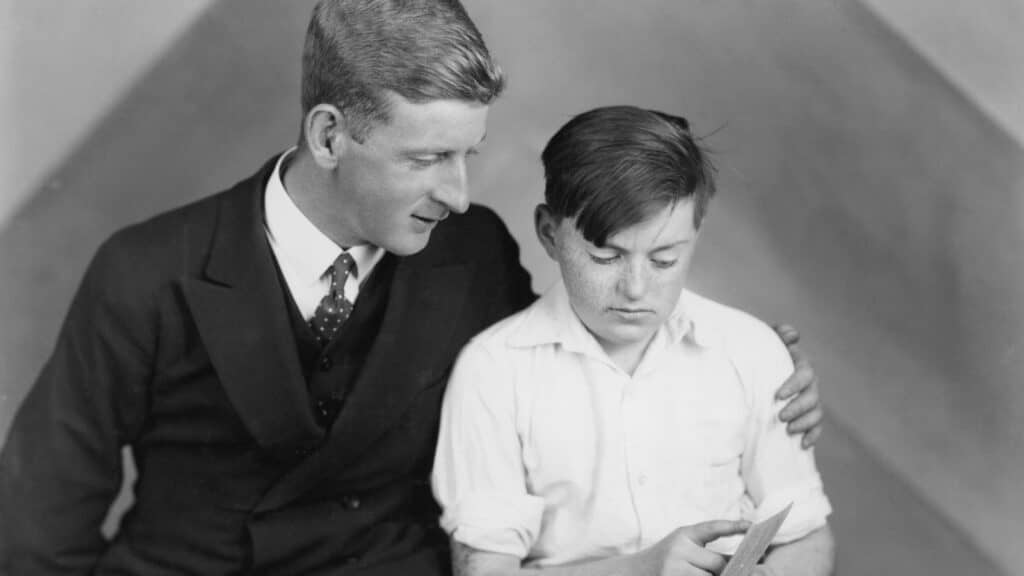Raising kids is hard. Everyone’s trying their best, and no one wants to raise a spoiled brat. But somehow, even with the best intentions, a few parents have bad habits that teach kids the world revolves around them. And it’s not always the obvious stuff like spoiling them with gifts. Here are 18 things parents are doing that create entitled kids, whether they like it or not.
Doing All the Talking For Them

The kid’s old enough to spell their name and everything, but Mom jumps in to order their food when they go to the restaurant, or answer the receptionist at the clinic. They might even explain why they’re late to every adult. The kid barely says a word, and over time, they just stop trying, because they believe someone else will always speak up for them. Why bother talking? The simplest stuff feels too hard.
Giving In to Complaints About Food at Restaurants

When a kid pouts because their burger looks weird, some parents instantly flag down the waiter to send it back. That’s a pattern in the making. Kids start thinking that every meal has to be perfectly to their liking or else it’s a crisis. It teaches them that they don’t need to adjust because the world should do it for them, so they start expecting custom meals everywhere they go. Anything that’s not just right has to be fixed immediately, no questions asked.
Letting Them Pick Family Activities Every Time

Some families only go where the kid wants, whether that’s a specific theme park or that one pizza place. Every group plan has to be kid-approved first, and that means that the children start expecting to have that kind of say in every setting. They push back when it’s someone else’s turn to choose, or they might sulk through anything that isn’t their top pick. It turns normal outings into a negotiation, and anything that doesn’t center on them becomes a waste of time.
Allowing Them to Interrupt Conversations

While you’re in the middle of a conversation with an adult, another kid comes in crying, “MOM! MOM! MOM!” and without being told to wait, they just barge in. It happens so often that they learn to never wait their turn because they’ve never had to. They don’t pause, and they don’t care who’s speaking. Even if it’s clearly not urgent, they expect to be heard immediately, and if they don’t get attention right away, they’ll raise their voice until someone gives in.
Replacing Lost Items Over and Over

The kid loses their water bottle again, and the parent buys them a new one, no questions asked. However, replacements that keep showing up like magic give the kids no reason to keep track of anything. They don’t label things, and they don’t double-check their bags, nor do they feel responsible for keeping anything in one piece. Why would they? There’s always a backup waiting.
Telling Teachers How to Run the Classroom

Some parents will email the teacher straight away if their kid doesn’t like where they’re sitting or who they’re paired with in class. While this isn’t always bad, doing it too often teaches kids that they can get their parents to fix anything that feels unfair. There’s no need to deal with it themselves. As such, kids stop asking questions or trying to solve problems with a teacher and instead assume someone will step in to change it.
Blaming Other Kids for Every Conflict

Anytime they get into it at recess, the parent says it “must’ve been the other kid.” When they break someone’s toy, it’s because “they provoked him.” A parent shouldn’t always take their child’s side without looking into the details. When this happens, it becomes second nature for the child to play the blame game, and they never learn to say that they messed up or that they could’ve handled things better. Even with clear evidence, they’ll insist it wasn’t their fault and look for who to blame, not what to fix.
Telling Them They’re Advanced or Gifted Based on One Skill

They read a book early or did a cool science trick, and suddenly their parents think they’re gifted. Talk about pressure. When that keeps happening, kids start believing they’re the smartest person in every room, whether or not that’s true. But worst of all, the kid gets frustrated when they’re not instantly perfect at something else or when someone else knows more than they do. Every small challenge becomes a threat to their ego, and they stop trying.
Letting Them Negotiate Bedtime Every Single Night

One more story and then one more song, along with maybe a glass of water, is how some bedtimes go. They become a nightly round of negotiations, where kids figure everything is up for debate. They start stalling on brushing teeth and arguing about pajamas, or asking for screen time at 9:30 PM, so the next day they’re cranky. But somehow, the cycle starts again like clockwork the following evening.
Giving Money Anytime They Ask Without Discussing It

When the kid wants ten bucks, they get ten bucks, without any conversations about chores or putting in some effort. The parent just hands it over. As a result, the kid starts thinking that money grows on trees, or that it just appears when they want something. They don’t check prices, and rarely finish saving up for anything because they assume a parent will fix things for them. The true value of a dollar is lost on these kids.
Laughing When They Insult People as a Joke

Some kids say mean comments about other people, and then the parent laughs it off. But doing so gives the kid permission to keep going with these insults, even if it actually hurts people, and it turns teasing into name-calling. It might become mocking or putting others down in front of groups. Kids stop learning where the line is and instead just double down whenever someone calls them out.
Fixing Their Mistakes for Them

It doesn’t matter if they forgot their gym shoes or if they left their science project at home because their parent comes to rescue them every time. As such, they never have to deal with mistakes, and they never learn to plan ahead because someone else always does it for them. The pattern keeps going. They’ll expect someone to call the coach or to explain things to the teacher since they don’t need to prepare. They don’t have to.
Letting Them Choose Which Rules to Follow at Home

One kid always gets a pass on chores or curfews because they’re “just not in the mood today,” and this becomes their normal. Why follow rules if they’re optional? They treat every expectation like a suggestion, and when you ask them to follow through, they’re shocked or offended. They see rules as a punishment instead of a part of life.
Expecting Others to Include Them No Matter What

Whenever a child doesn’t get invited to the party, some parents call the host because they treat social stuff like school, where everyone has to be included. That teaches kids that being left out is someone else’s mistake. They don’t understand it’s something to accept or learn from, so they stop working on being a better friend or reading the room. Instead, they expect a place in every group, every time, regardless of whether the connection is actually there.
Making Siblings Share Everything With Them

The older sibling gets a new toy, and right away, their parents tell them to let the younger sibling play with it too. That seems fair until the younger one starts thinking that people should give them everything that they want. There’s no sense of ownership or respect for boundaries. Of course, the older kid could say “no,” but doing so turns the conversation into tears or tattling, with the parent stepping in to keep the peace.
Letting Kids Correct Adults Without Correction

You’ve probably seen many kids jumping in mid-sentence to “correct” a grown-up on something tiny, but rather than addressing it, the parent just shrugs or smiles. When they do that enough times, the kid starts thinking every adult needs their input, whether they asked for it or not. It starts with grammar or facts. Soon enough, it creeps into tone and opinions, too. Rather than simply being curious, they’re learning that it’s fine to talk over people.
Saying “They’re Just Tired” to Excuse Rudeness

Instead of telling their kids that ignoring someone is rude, some parents will excuse their behavior and say, “Oh, he’s just tired.” Of course, being tired happens. But when you brush off every outburst or cold shoulder like that, it becomes the default excuse that gets used at the grocery store and during dinner. Eventually, the kid figures they don’t need to say “please” or “thank you” because they’re always allowed a free pass.
Posting All Their Achievements Online Constantly

Parents post their kids’ every gold star or minor award on social media with heart emojis and hashtags. After a while, the kids expect applause for the smallest things, and they stop focusing on the work to start looking for likes. That constant need for attention becomes part of how they decide what matters.
17 Things Your Kids Will Thank You For Later

From hard love to seemingly little things that are invisible to you today, here are 17 underhyped moves your kids will roll their eyes at today… and thank you for it tomorrow.
17 Things Your Kids Will Thank You For Later
19 Old-School Parenting Habits That Still Work Today

In an era of gentle parenting, screen-time wars, some old-school techniques, and those “back-in-my-day” tactics were straight gold. Sure, they might seem “outdated” or “strict,” but this is the thing: those old-school moves work—better than those TikTok “tips.”
19 Old-School Parenting Habits That Still Work Today

